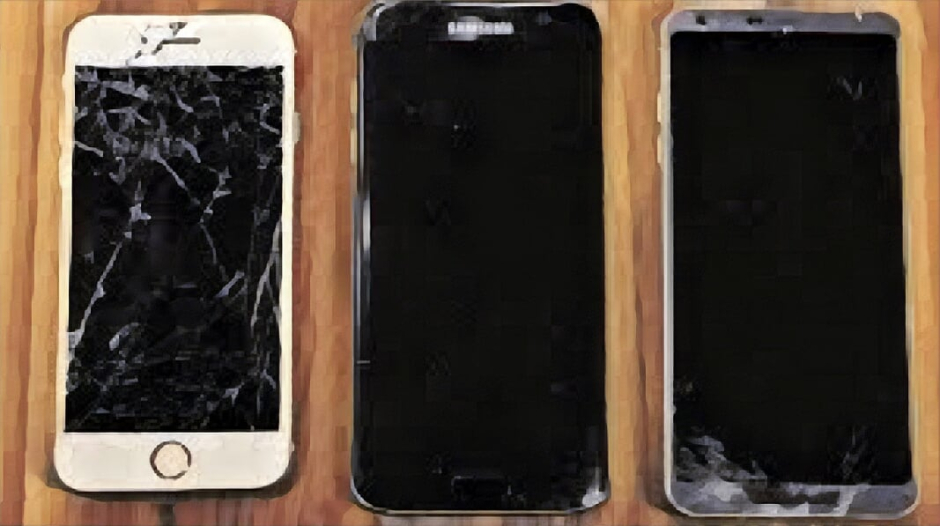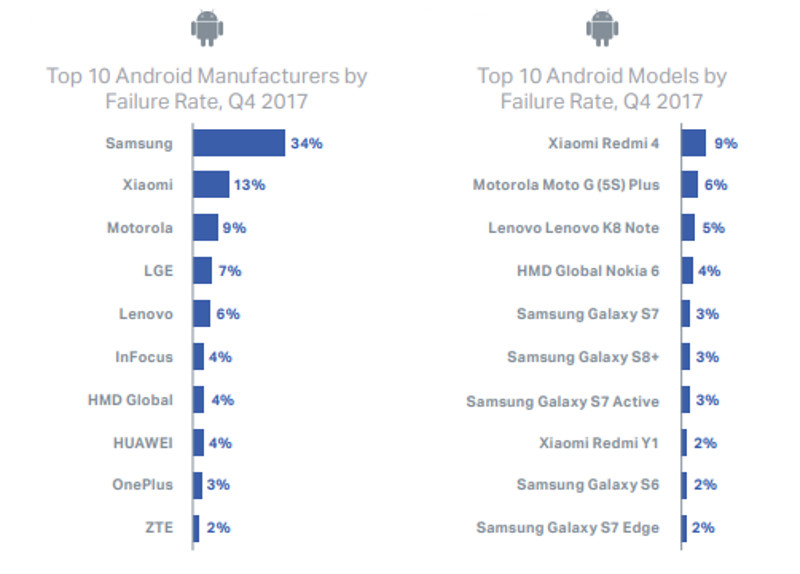A report has revealed that Samsung phones fail most often, resulting in repair work being needed. In the list of Top 10 Android Manufacturers by Failure Rate, Samsung topped the list with 34%. From an individual device’s perspective, Xiaomi’s Redmi 4 topped the list with a 9% failure rate. Motorola’s G5S Plus secured second position (definitely not a good thing, please don’t get happy, Moto fans). HMD’s new Nokia 6 faced a 4% failure rate, which means it holds the 4th position. Samsung’s S7 comes in at 5th position with a 3% failure rate, followed by the S8 Plus and S7 Active, which have the same failure rate.
In terms of brands, Xiaomi came in second with a failure percentage of 13%. The difference between the two companies is (too) visible, which shows how unreliable Samsung is getting in regard to product life. One interesting thing, however, is that none of Huawei’s phones have a high failure rate, thus the absence of any of their smartphones from the list. Overall the Chinese company secured 8th position, which is a good indicator of their progress.
The phone’s performance, the camera, and the microphone were the most common issues in Android devices. Android devices are known to lag and their overall performance is known to deteriorate over time. But at least Android manufacturers have the grace to accept this and take steps to counter it instead of hiding it away and lying about it to consumers like Apple did about the #BatteryGate issue. With this, let’s get to the failures of iOS devices.
The iPhone 6 carried a failure rate of 26%, which is alarmingly high when compared to the top position of its Android counterpart. Its newer model, the iPhone 8 Plus has an 8% failure rate, which is pretty disappointing, to be honest. You’d expect a 4-year-old phone (iPhone 6) to fail but certainly not a year old phone to fail, that too at such a rate.
iOS users have quoted WiFi and Bluetooth connectivity issues as one of the main failures in their phones. Performance hasn’t made the top five list of iPhone failures but there’s quite a logical explanation present for that. The iPhones are flagship products of arguably the biggest company worldwide whereas most of the Android devices on the list are budget phones. Furthermore, software plays a huge role int he phone’s performance as well and considering Apple is in complete control of the iOS platform, it’s wrong to compare it with Android since;
A. Android manufacturers run their own custom skins. Huawei uses EMUI, Xiaomi uses MIUI and so on. These skins put additional load on the already stressed-out processors, which eventually lead to the performance falling down in terms of efficiency.
B. Android devices are slow to get updates. Each manufacturer takes time to optimize software updates for their respective models and obviously enough an old OS is bound to be an obstacle in the phone having flawless performance.












